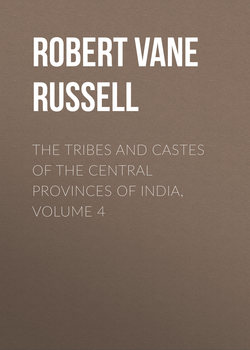Читать книгу The Tribes and Castes of the Central Provinces of India, Volume 4 - Robert Vane Russell - Страница 19
Part II
Articles on Castes and Tribes
Kumhār—Yemkala
Vol. IV
Kunbi
6. Restrictions on marriage of relatives
ОглавлениеA man is forbidden to marry within his own sept or kul, or in that of his mother or either of his grandmothers. He may marry his wife’s younger sister but not her elder sister. Alliances between first and second cousins are also prohibited except that a sister’s son may be married to a brother’s daughter. Such marriages are also favoured by the Marātha Brāhmans and other castes, and the suitability of the match is expressed in the saying Ato ghari bhāsi sūn, or ‘At a sister’s house her brother’s daughter is a daughter-in-law.’ The sister claims it as a right and not unfrequently there are quarrels if the brother decides to give his daughter to somebody else, while the general feeling is so strongly in favour of these marriages that the caste committee sometimes imposes a fine on fathers who wish to break through the rule. The fact that in this single case the marriage of near relatives is not only permitted but considered almost as an obligation, while in all other instances it is strictly prohibited, probably points to the conclusion that the custom is a survival of the matriarchate, when a brother’s property would pass to his sister’s son. Under such a law of inheritance he would naturally desire that his heir should be united to his own daughter, and this union might gradually become customary and at length almost obligatory. The custom in this case may survive when the reasons which justified it have entirely vanished. And while formerly it was the brother who would have had reason to desire the match for his daughter, it is now the sister who insists on it for her son, the explanation being that among the Kunbis as with other agricultural castes, to whom a wife’s labour is a valuable asset, girls are expensive and a considerable price has to be paid for a bride.
